9 Clever Ways to Organize Your Fridge To Eat Healthier
What and where you put things both inside and outside the refrigerator can have a huge affect on your eating habits.
By Sara Cann and Emma Haak
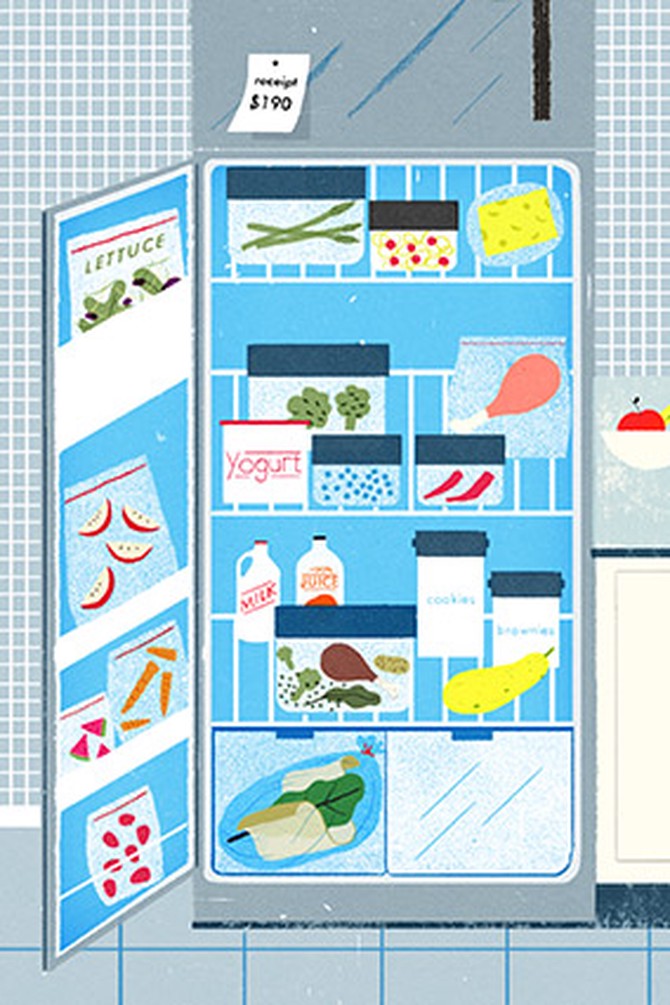
Illustration: Chris Silas Neal
When hunger strikes, are you more likely to reach for junk foods than superfoods? The fix might be as simple as a little strategic shelving, experts say. We asked a team of them—including a nutrition scientist, a psychology researcher, and a professional organizer—to rethink how we stock the refrigerator. Here are their best tips for prompting healthier choices.
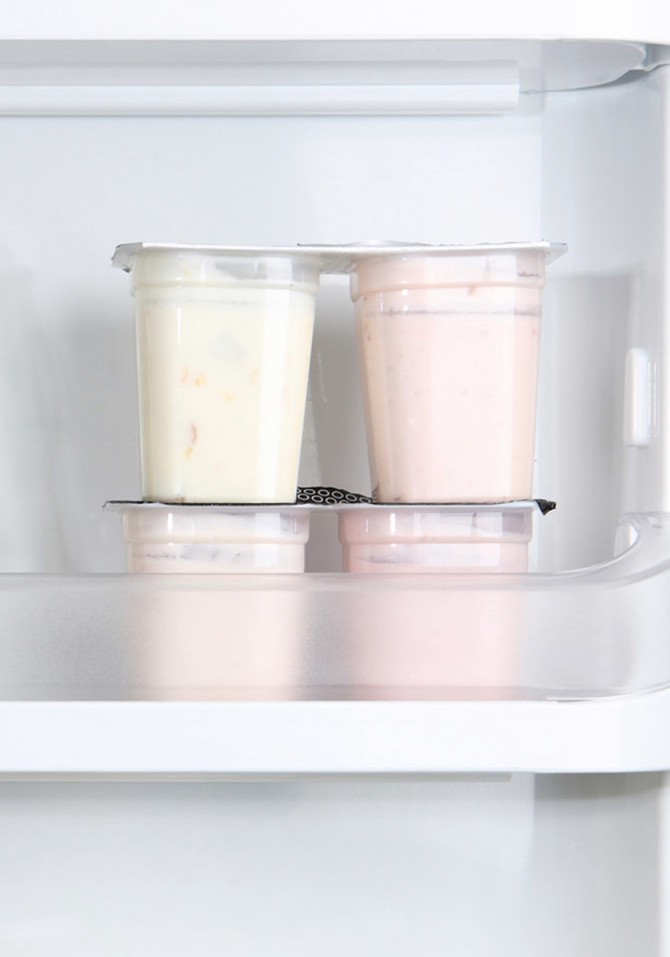
Photo: AtomStudios/iStock
Do The Thing That’ll Make You Want to Eat the Greek Yogurt
Take a pre-portioned bag of your favorite nuts and put it right on top of the container, says Rebecca Scritchfield, RD, founder of the Capitol Nutrition Group in Washington, D.C. Then tape some bags to pieces of fruit too, or pieces of string cheese, and put pre-cut bags of veggies on top of single serving hummus cups. No-brainer, healthy, ready to go snacks.
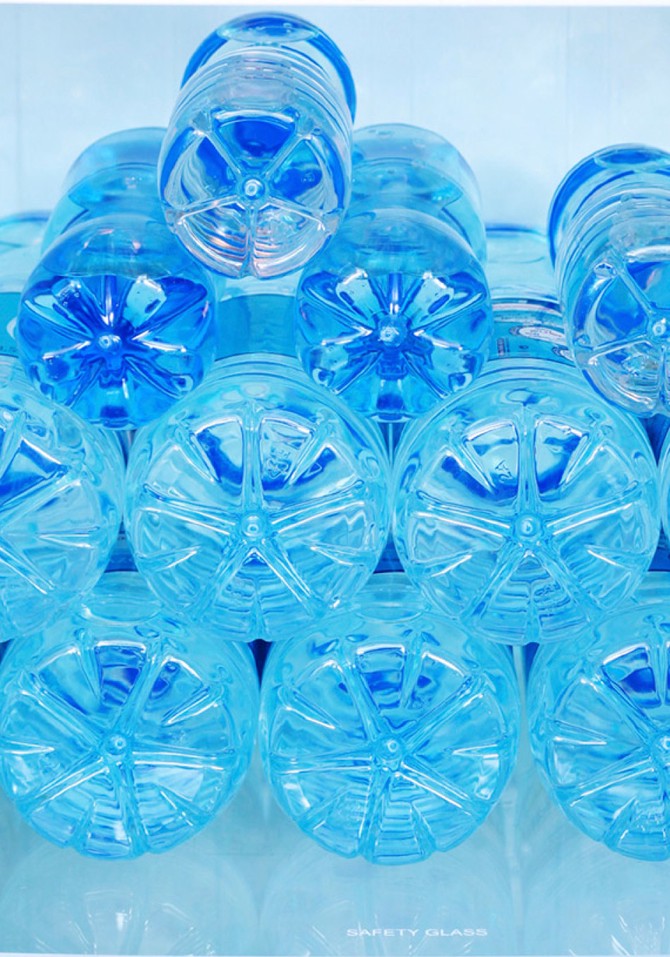
Photo: matka_Wariatka/iStock
New Rule: Water Free Zone
How many times have you gone to the fridge intending to get water and been sidetracked by a glimpse of the leftover pie on the top shelf? Keeping your H20 there means inevitably eyeing the food inside every time you open the door to grab some, says Michelle May, MD, author of Eat What You Love, Love What You Eat. Fill from the tap or use the dispenser on the outside of your fridge door (if you have one) to avoid the unnecessary test of willpower.
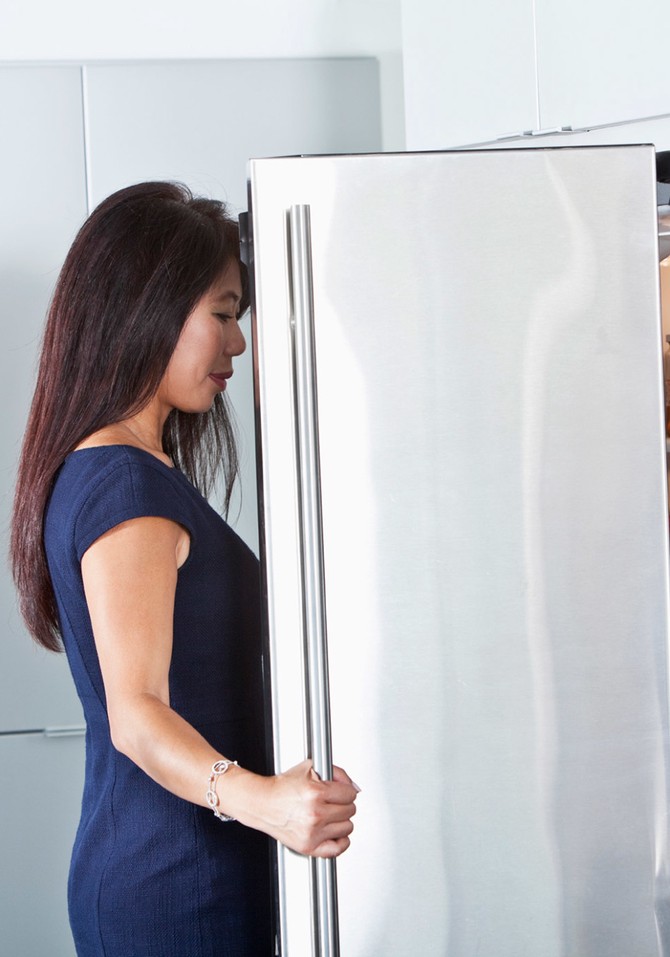
Photo: Susan Chiang/iStock
Ask This Question First
Most people ask themselves what they have in the fridge before asking A) am I actually hungry? And B) if I am hungry, how much should I eat based on when my next meal is? Big mistake, says Michelle May, MD, author of Eat What You Love, Love What You Eat. Asking in the right order will help you make choices based on what your body needs versus what your eyes see. A note on the outside of the fridge with the questions in the correct order can serve as a reminder.
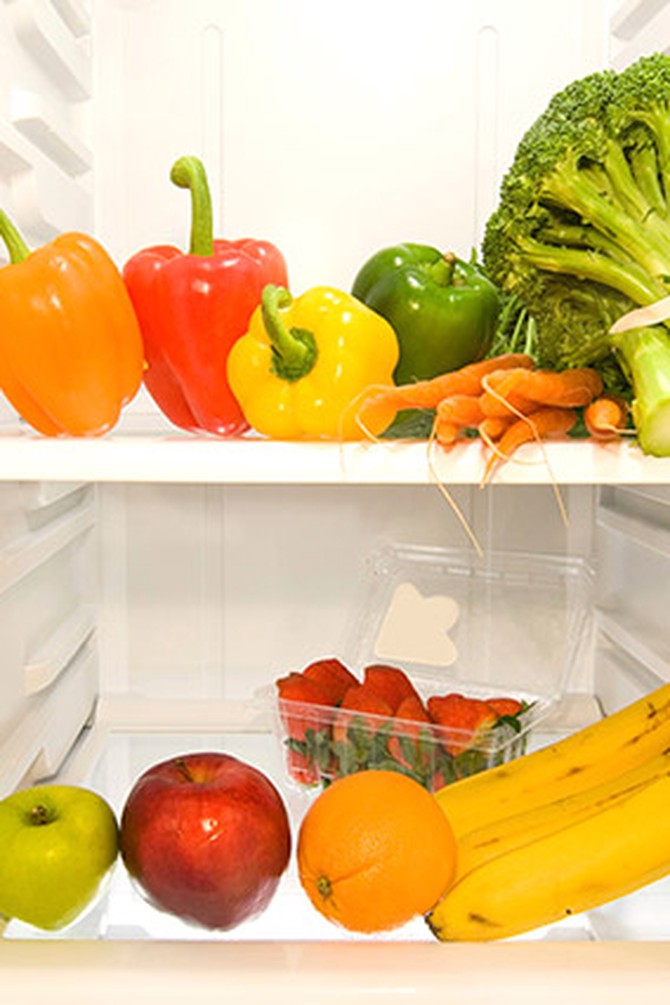
Photo: Thinkstock
Nutritious Foods Go On the Middle Shelf
A team of psychologists at the UK's University of Chester found that when subjects are asked to select an item from a group, they tend to choose the item in the center. The rule holds true for food, too, according to a study published in the Journal of Marketing that showed that products on middle shelves in grocery stores gain more attention than those on lower shelves.
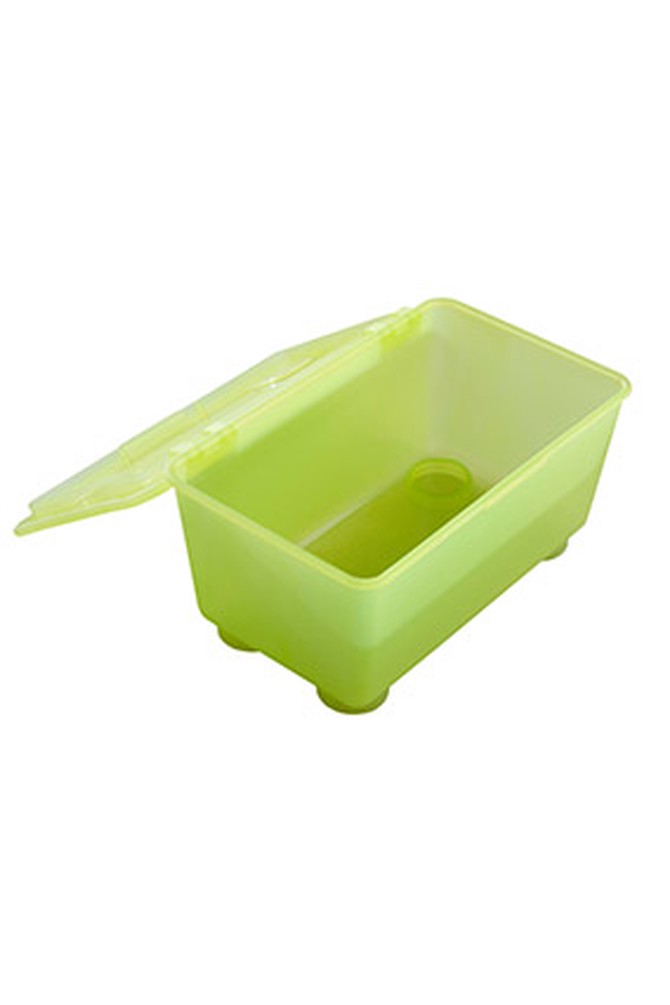
Photo: Thinkstock
Put Indulgent Snacks in Opaque Storage Containers
Being able to see a food makes you more enticed to eat it, says Brian Wansink, PhD, director of the Cornell Food and Brand lab and author of Mindless Eating: Why We Eat More Than We Think. He has found that when study subjects are given chocolates in a clear bowl, they'll eat nearly 70 percent more than when the treats are placed in an opaque bowl.
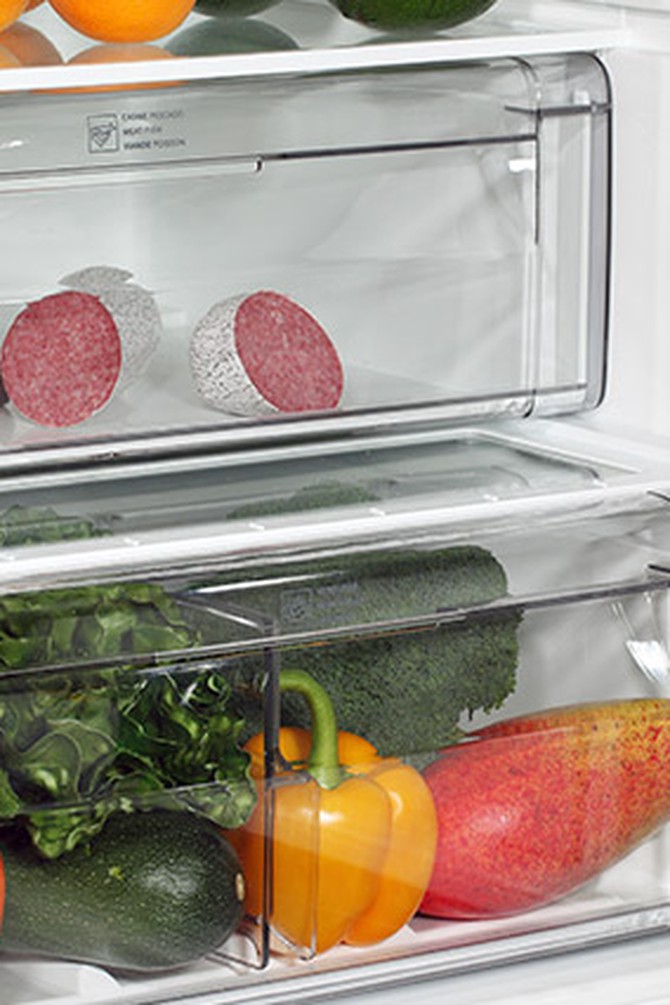
Photo: Thinkstock
Keep Produce Fresh Longer
Lynne Johnson, a professional organizer in Massachusetts, has her clients store fruits and veggies with Fenugreen FreshPaper—five-inch square sheets treated with organic ingredients that inhibit bacterial and fungal growth. Put FreshPaper in with lettuce or berries and they'll last two to four times longer, Johnson says.
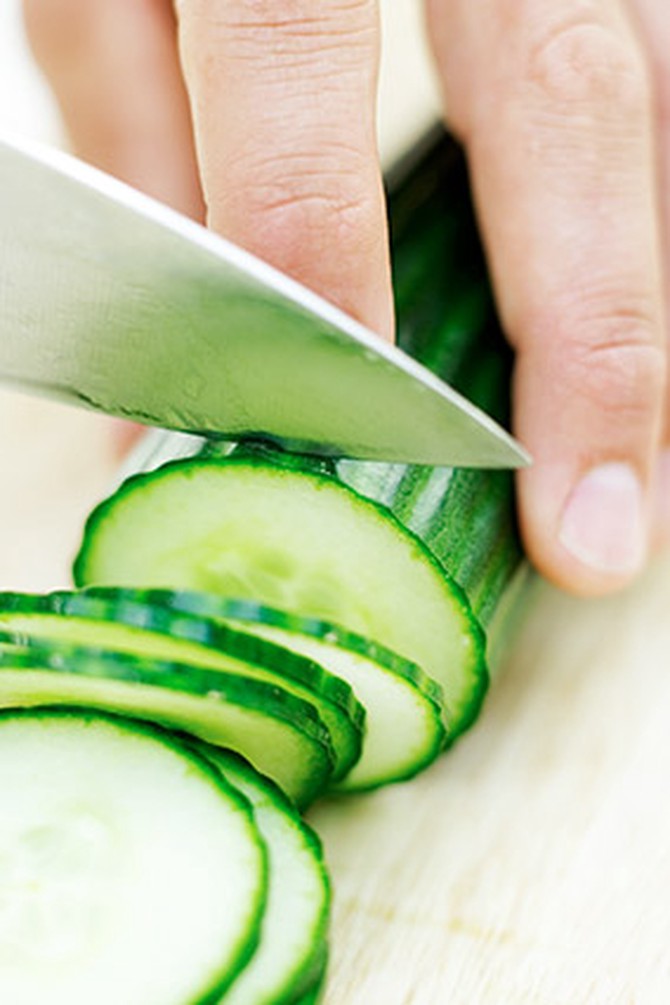
Photo: Thinkstock
Do Some Prep Work
"When you're really hungry, you don't want to peel a carrot if you can just open a bag of chips," says Wansink. The trick is to make vegetables and fruit more convenient to eat by cleaning and cutting them up so they're ready to go the next time you raid the fridge. And make sure to store those celery sticks and kiwi slices in your line of sight: "You're three times more likely to eat the first thing you see than the fifth," Wansink says.
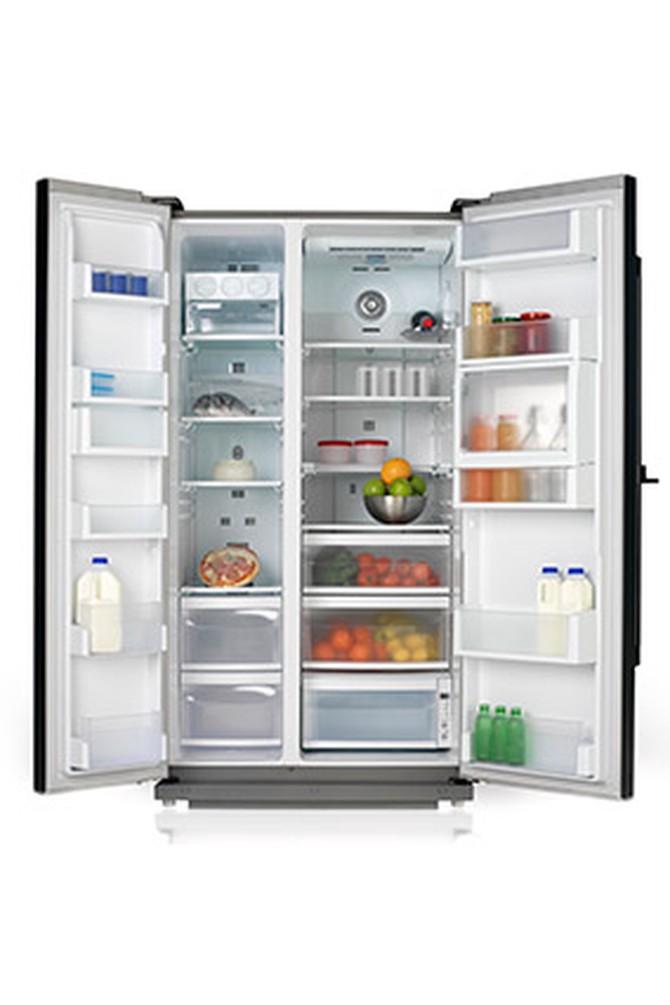
Photo: Thinkstock
Be a Minimalist
If your fridge is overstuffed, you may be tempted to head toward the pantry for cookies rather than spend time sifting through the clutter, so Johnson recommends conducting a monthly purge to get rid of any unwanted and expired food. (Generally, cooked leftovers last up to four days and raw poultry and ground meats are good for one to two days.) Your de-cluttering goals: (1) Leave a half-inch space between items, and (2) avoid making stacks whenever possible.
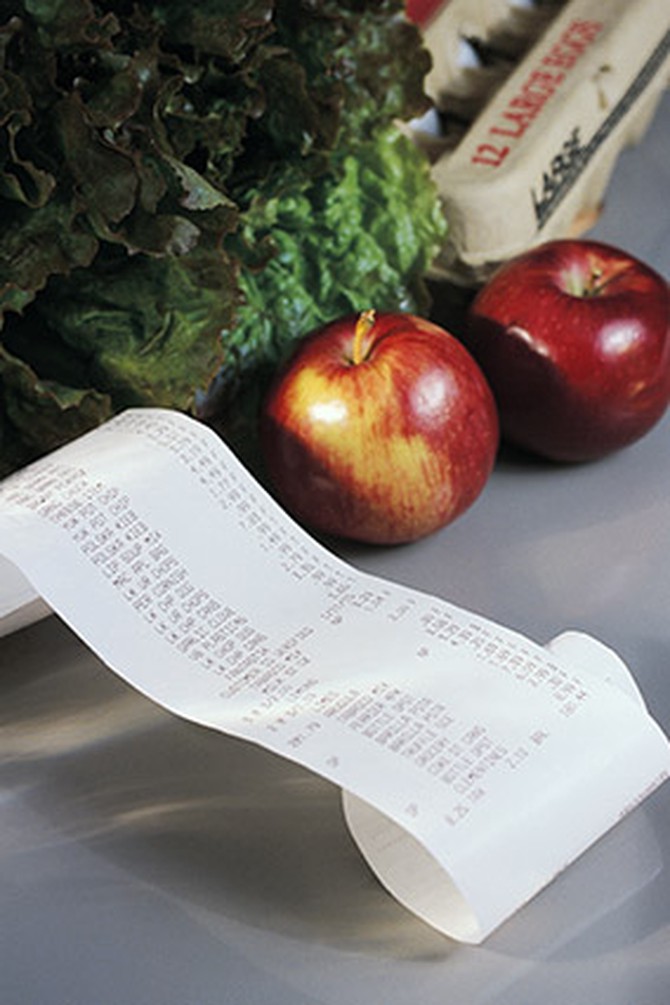
Photo: Thinkstock
Post Your Grocery Receipt on the Door
It serves as an inventory of the healthy stuff inside. Johnson says the visual reminder helps her clients eat their good-for-you items before they go bad. Plus: What better way to encourage yourself to eat that biodynamic goat cheese and organic papaya than remembering how much they cost?
Next: Cat Cora's tips for kitchen organization
Next: Cat Cora's tips for kitchen organization
Published 12/16/2015

